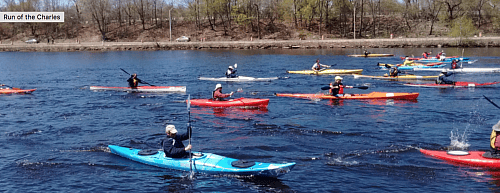Behind the Charles River Cleanup Lies a Surprising Story

Hundreds of paddlers recently raced kayaks, canoes, and stand-up paddleboards in the Charles River for the annual Run of the Charles.
That the water quality in the river has dramatically improved over the 36 years since the race first began is a tribute to the non-profit group that organizes the competition, the Charles River Watershed Association, and to its executive director, Robert Zimmerman Jr., who will retire this summer after 28 years of leadership.

